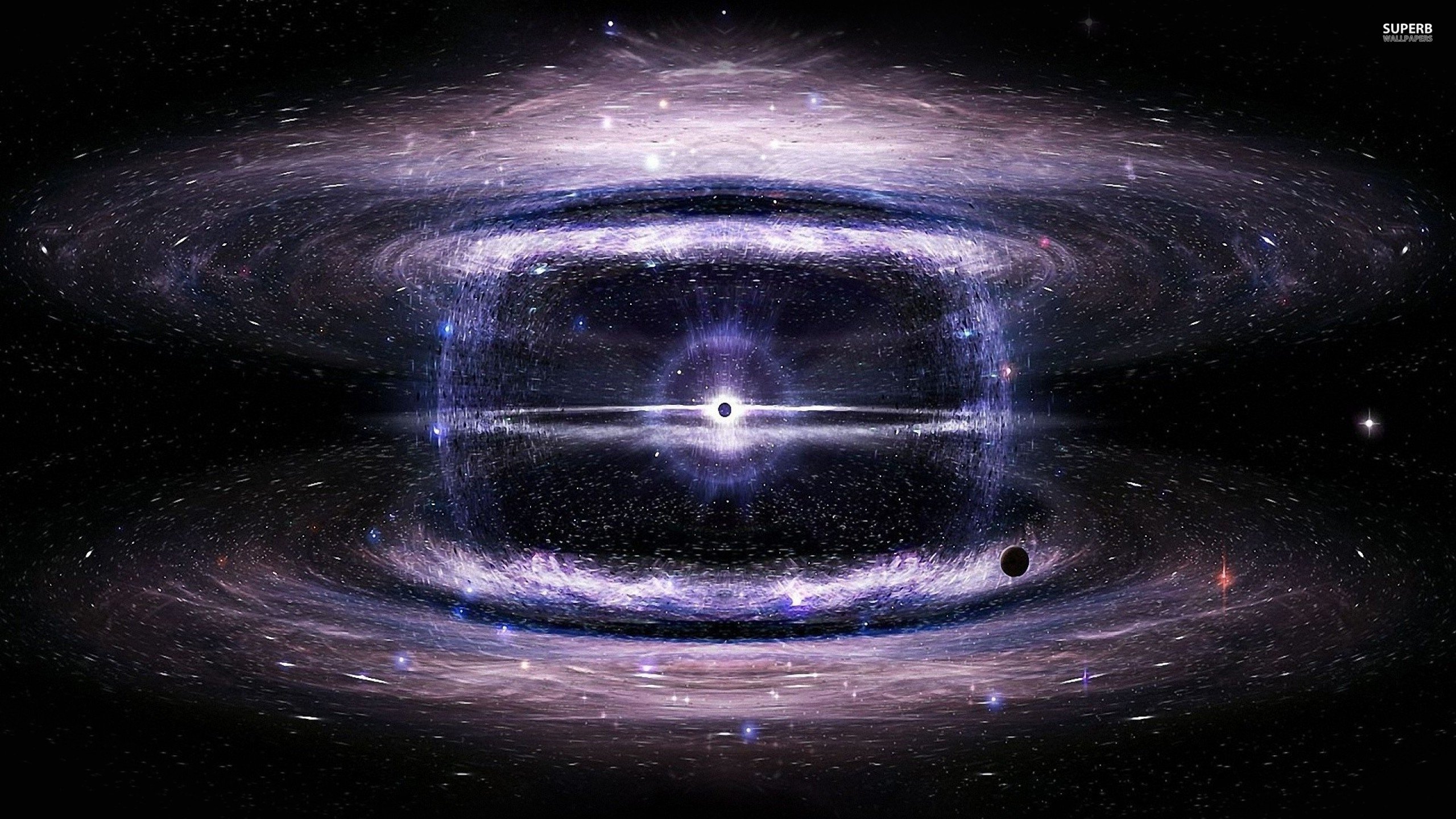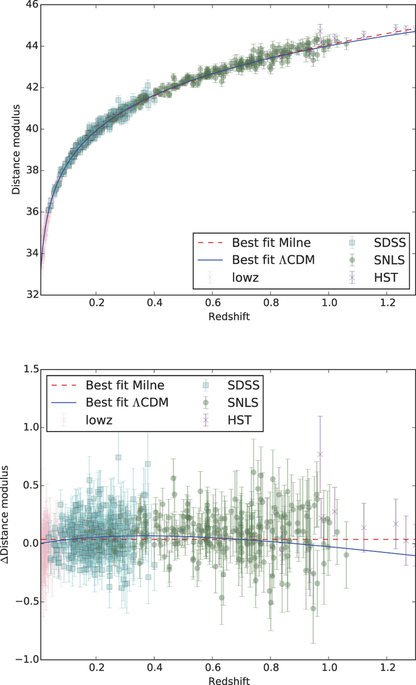
Dark Energy... That's the theory that most of the mass/energy of the universe is missing right?
In the late 1990s a group of scientists examined a large catalog of Type IA supernovae and they found that not only is the Universe expanding, it's doing so at an accelerating rate!
This meant that something in the universe was causing the expansion and this was attributed to a heretofore unknown energy source that we have been calling Dark Energy every since.

It turns out that interpretation was probably wrong, but the reason why they were wrong is a fascinating story of how real science in action is supposed to work.

Since the 1950s, it's been a well known fact that Type IA supernovae are the result of a specific set of processes. These processes always result in a specific admixture of elements as the end result of the life cycle of the parent star. The net result of knowing all of this is that Type IA supernovae always occur with a specific intensity and thus they can serve as a sort of "standard candle". We can then use the perceived luminosity of the event as seen here on earth to determine how far away the event occurred and we can use the redshift to determine how far back in time the event occurred.

This was all common knowledge circa 1990 when the lambda value (the density of dark energy in the universe) was derived and we were all suddenly faced with the daunting realization that 80% of our universe is just missing!
Now fast forward twenty years. A subtle and unheralded discovery occured that had shocking consequences as I predicted it would. As it turns out, Type Ia supernovae are NOT all the same. There are actually different Type IA supernovae possible. These are based on the mass of the star and the metal content of the star (to astronomers anything heavier than helium is a metal).
As I said back in 2014 when Milne et al was still in preprint...
These supernovae which we thought were the same are actually different. Low metal stars were much more common earlier in the history of the universe. This "standard candle" is anything but. Be prepared to have a paradigm shift about dark energy, the age of the universe and possibly the big bang itself.
In plain English this meant that 20 years of textbooks may need to be revised. What we thought were standard candles were nothing of the sort. If that is true it could mean that the universe isn't as big as we thought and now it looks like it isn't accelerating the way we thought it was.
But to push back 20 years of "everybody knows". Would require going back over ALL of the data...

It's been two years in the making, but in light of Milne et. al Astrophysicists at the University of Copenhagen have finished their analysis and the results are striking.
What they've found is that the theory positing accelerating expansion and has been weakened. If true that would seriously call into question Dark Energy and everything we've built around it. We underwent a similar revolution around 100 years ago when the Aether was found to be incorrect as well.
This finding has more significance than they state in the article on nature. There are only a handful of possible conditions for the universe. Those conditions are
- accelerating expansion
- steady expansion
- decelerating / breaking expansion
- contraction
- steady state
They have now effectively ruled out #1 and #2 is not looking so healthy anymore either.
This leaves 3, 4 and 5 as the most likely candidates, but 4 and 5 are highly unlikely unless we find out Zwicky was somehow correct about light getting tired.
Nevertheless, even if it's only down to 2 or 3, it's HUGELY important that we know which of these is the actual case. It effects lambda (the dark energy constant), but it also effects the gravitational constant.
With these values now effectively up in the air, it brings into play many, many Grand Unified Theory candidates that had been tossed on the dust bin of history because they couldn't explain DE. To my mind this also means the Kaluza-Kline theory that unified Electromagnetism and Gravity way back in the 1940s is back in play. This is one of those breathtaking discoveries that very few people are talking about because no one is seriously considering all the repercussions... Yet!
Even this discovery by itself is just huge in it's direct implications...
Most of the universe may not be missing!
There is still likely to be dark energy of some kind, but it's probably not anywhere near as prevalent as previously thought and every calculation that took it into account, needs to be rethought in light of this new science.
This is great science, it's also very courageous to stand up and say "everything everyone knows about this is wrong". But this is solid and they even made the source code and data available for download for free.
further reading
Milne et. al
Nielsen, J. T. et al. Marginal evidence for cosmic acceleration from Type Ia supernovae
What are your thoughts? Do you feel better knowing that most of the Universe is no longer missing?
image credits...
superbwallpapers.com
pbs.org
NASA
nature.com
